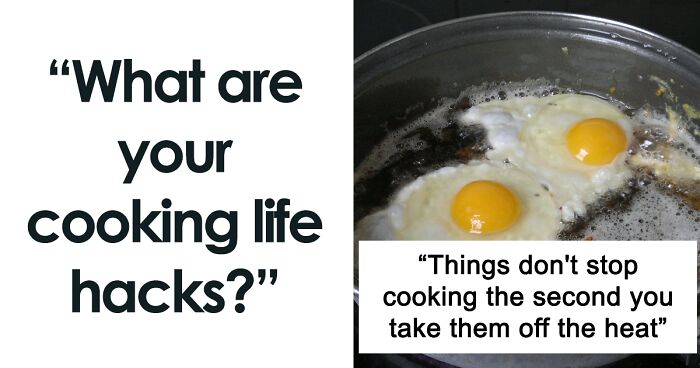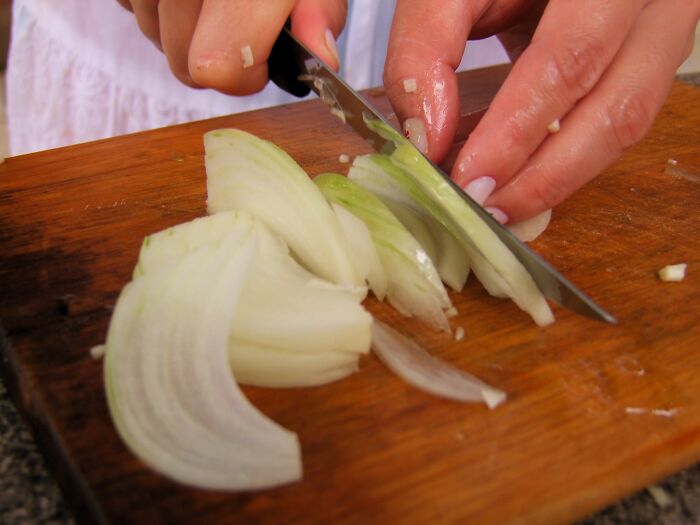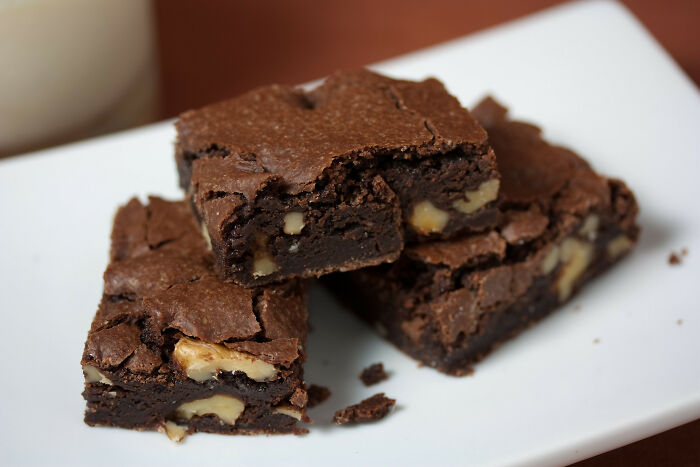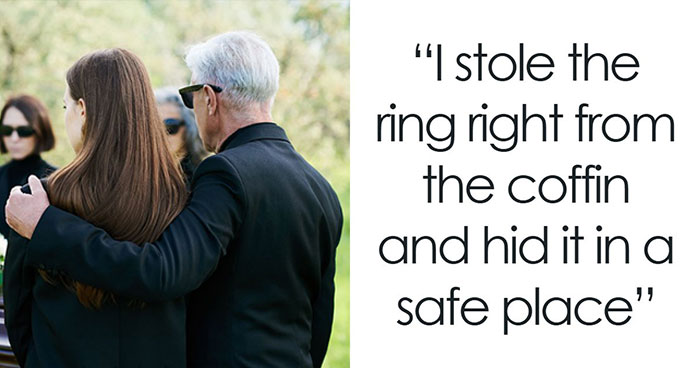In the Middle Ages, the teaching of the so-called "Seven Liberal Arts" was obligatory in universities, and only those who mastered them could rightfully call themselves an educated and cultured person. Grammar, logic and rhetoric were the first three, and arithmetic, geometry, music, and astronomy were the next four. It has been like this for centuries, but reality tells us that all these years later, there is another, much more important and valuable art - cooking.
Indeed, cooking is a real art. You can interpret it as a craft aimed only at satisfying your hunger, or you can endlessly vary the ingredients, tools and seasonings, creating absolute masterpieces. And then the name of Julia Child, who taught Americans about haute cuisine right at home, will rightfully stand on par with such great popularizers of science as Neil deGrasse Tyson or Robert Feynman.
A few years ago, there was a thread in the AskReddit community where the topic starter asked people a simple question: "What are your cooking life hacks?" Today, this thread has over 2.3K upvotes, plus approximately 2.2K miscellaneous comments. Some of them are outright trolling like "if you put the meat in the freezer, it will last longer", but others are real gems that will really help any novice or even professional chef.
Of course, if the pinnacle of your culinary prowess is to spread butter on bread and put a piece of sausage on top, you can safely close the tab with this post. However, who knows, perhaps this will be the trigger for you that will wake you up as a future master of kitchen affairs?
In any case, Bored Panda has compiled for you a selection of the smartest, non-standard, sometimes crazy, but no less outstanding ideas from the original thread, so please feel free to scroll this list to the very end, save the greatest ideas and, who knows, maybe add your own for someone else's benefit.
More info: Reddit
This post may include affiliate links.
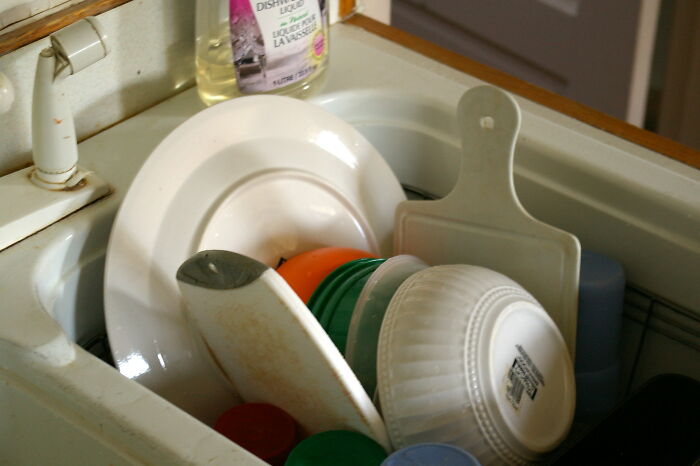 Not sure if this counts as a cooking hack, but I've learned to clean up my dirty dishes/utensils *while* making the meal; don't wait until after. It saves time, keeps me in the kitchen while I need to monitor the cooking, and then minimal clean-up after the meal!
Not sure if this counts as a cooking hack, but I've learned to clean up my dirty dishes/utensils *while* making the meal; don't wait until after. It saves time, keeps me in the kitchen while I need to monitor the cooking, and then minimal clean-up after the meal!
This💯 - my mother taught me to clean as you go. I'd rather take a few extra minutes during the cook than leaving everything for after the meal.
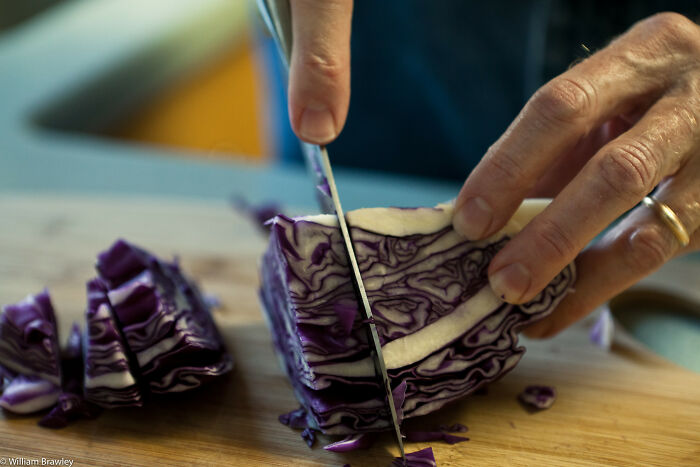 Sharper knives are safer.
When chopping, focus on safety and proper method, speed will come naturally.
Sharper knives are safer.
When chopping, focus on safety and proper method, speed will come naturally.
Dull knives mean you need to push harder to cut. Pushing harder, especially if it is not cutting well, means it is more likely to slip off the item and onto a stray hand, coming down with that extra force.
By the way, the first cookbook in history that has survived to the present day was compiled at the end of the 4th century AD. This is the famous 'De re culinaria', the authorship of which is attributed to the legendary ancient Roman gourmet Marcus Gabius Apicius. For almost two thousand years of its existence, the book has withstood several hundred reprints, and its first printed edition was published in Europe only a few decades after the actual invention of the printing press.
By the way, the cult book of all European gourmets actually did not contain any recipes, but it described the ways of cooking, the rules of behavior at the table, and also, in fact, the very thing that this post is dedicated to - various culinary tips and life hacks.
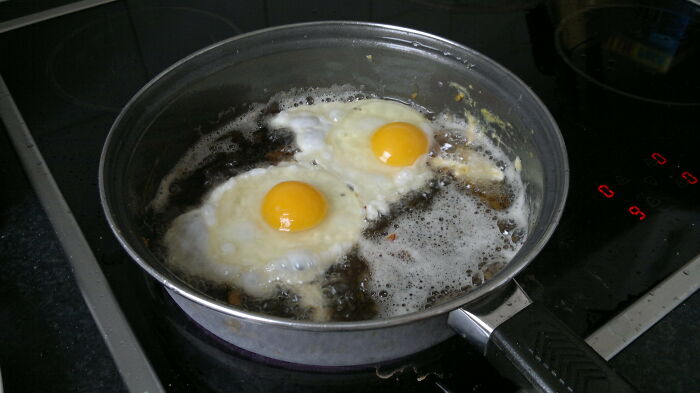 Things don't stop cooking the second you take them off the heat. For example, you want to take scrambled eggs off the stove when they are still glistening and slightly wet looking. The internal heat will finish the cooking.
Similarly you want to take meat off just a little before the internal temp reaches what you're shooting for, because the heat from the outside of the meat will continue to migrate inwards and cook the inside while the meat is resting.
Things don't stop cooking the second you take them off the heat. For example, you want to take scrambled eggs off the stove when they are still glistening and slightly wet looking. The internal heat will finish the cooking.
Similarly you want to take meat off just a little before the internal temp reaches what you're shooting for, because the heat from the outside of the meat will continue to migrate inwards and cook the inside while the meat is resting.
Also, if using a meat thermometer, put the tip in only to the center of the meat, NEVER all the way down (like with steak that's only a few inches thick), otherwise you will get a false reading because you will end up getting the reading from the pan which will be much hotter than the internal temperature of the meat.
Mix Worcestershire sauce into your raw burger meat before cooking it. Makes it juicier.
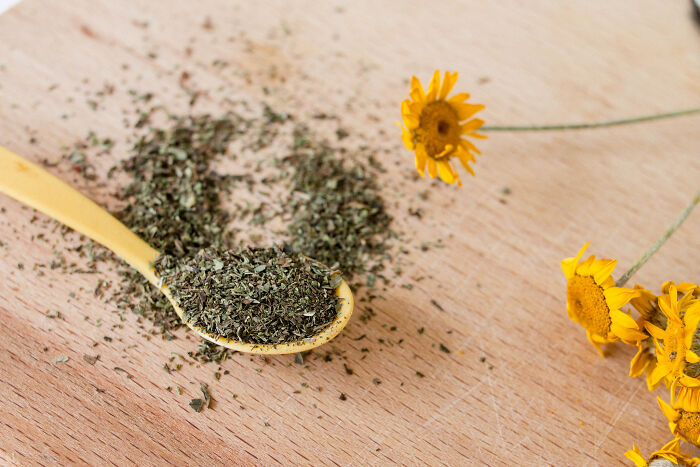 Add oregano to your frozen pizza before heating it up. Also, you should probably add more cheese while you're at it because they never put enough cheese on those things.
Add oregano to your frozen pizza before heating it up. Also, you should probably add more cheese while you're at it because they never put enough cheese on those things.
"Any professional chef, like a scientist or an artist, must develop, look for new ideas and concepts," says Roman Sardarian, a chef from Ukraine, who was asked by Bored Panda to share some professional secrets. "If a chef doesn't find new recipes or combinations, burnout will set in sooner or later. That's why I'm always looking for something new for myself."
"From recent fresh ideas - for example, this concept of a non-standard side dish. Combining familiar ingredients into something new is true art. So, just imagine - we take butter and honey in a ratio of two to one, mix them, add a few tablespoons of soy sauce. Then we chop ordinary carrots, fry over high heat literally until black roasts appear. And then we mix the fried carrots with the prepared sauce. We get an incredibly original side dish, perfect for many meat dishes. And the joy of such small but important discoveries largely adds up to the pleasure of our work," says Roman.
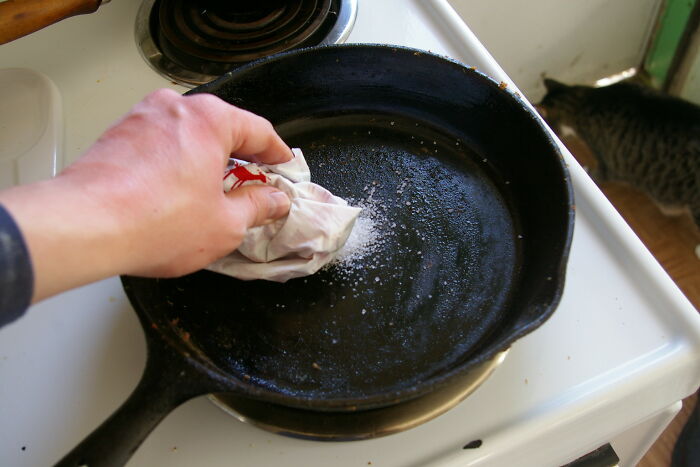 Cast iron pans. I love my cast iron skillet, and try to cook as many meals in that as possible. A well seasoned pan is wonderful to cook it, it does give you extra iron in your diet, and it basically is nonstick as long as you take proper care of it and keep it seasoned.
Cast iron pans. I love my cast iron skillet, and try to cook as many meals in that as possible. A well seasoned pan is wonderful to cook it, it does give you extra iron in your diet, and it basically is nonstick as long as you take proper care of it and keep it seasoned.
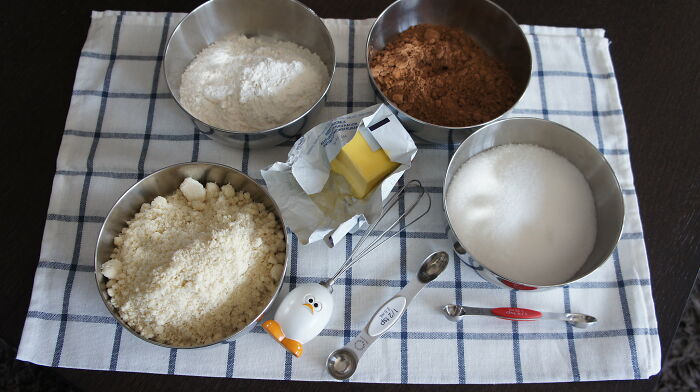 - Cooking is feeling; baking is science.
- Salt & peppar are your best friends. Seasons every ingredient accordingly, not just the finished dish.
- Don't use too high heat. Burned food is bad food.
- Never leave the kitchen when there's something on the stove.
- Prepare all the ingredients before you start.
- Keep your knife sharp.
- Clean as you go.
- Cooking is feeling; baking is science.
- Salt & peppar are your best friends. Seasons every ingredient accordingly, not just the finished dish.
- Don't use too high heat. Burned food is bad food.
- Never leave the kitchen when there's something on the stove.
- Prepare all the ingredients before you start.
- Keep your knife sharp.
- Clean as you go.
It is interesting that every year, the number of people who want to learn how to cook deliciously is only growing. For example, year-to-date sales of baking cookbooks were 42% higher they were last year, according to The NPD Group. Overall, there has been a steady 10% growth in cookbook sales over the past decade. So, who knows, maybe after reading this post of ours, you will also add to this statistic of people who are interested in cooking as an art.
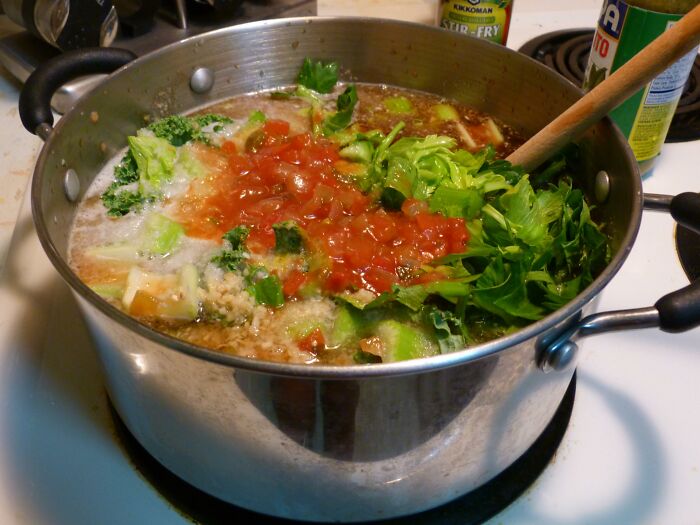 Save all bones and veggie scraps! Keep them in a Tupperware or bag in the freezer, and once it's full, make broth. Seriously the best soup starter, plus it's frugal and waste-free!
Save all bones and veggie scraps! Keep them in a Tupperware or bag in the freezer, and once it's full, make broth. Seriously the best soup starter, plus it's frugal and waste-free!
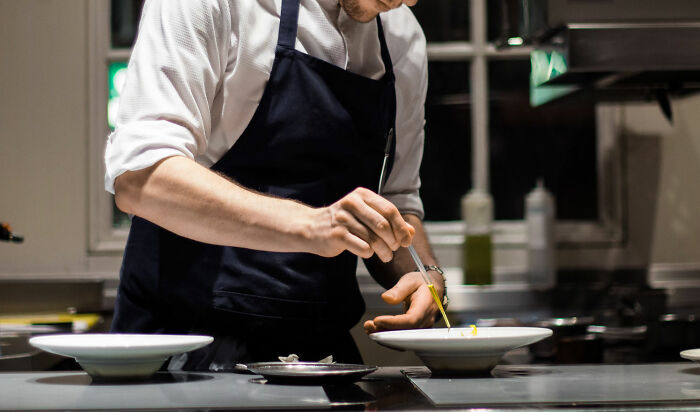 Date/marry someone who cooks
Date/marry someone who cooks
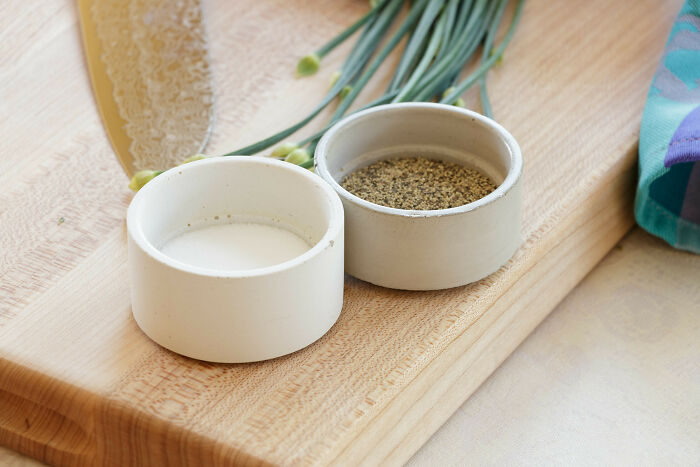 It's amazing what you can accomplish with just a few shakes of salt and pepper. Season everything.
It's amazing what you can accomplish with just a few shakes of salt and pepper. Season everything.
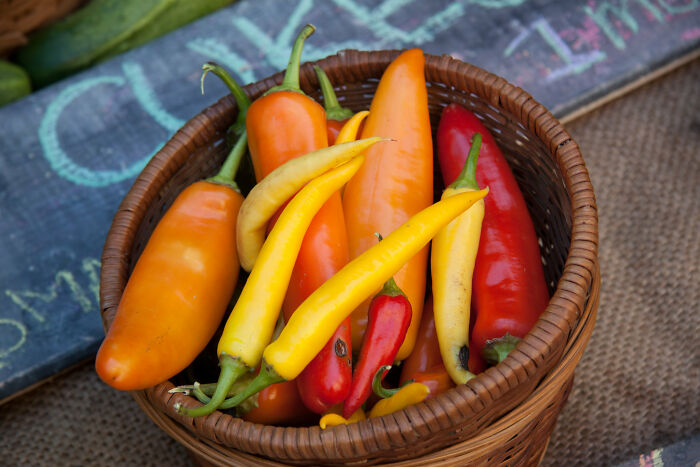 1.) Pre-cut 2 large onions to use throughout the week.
2.) Freeze hot peppers, especially if you use them rarely.
3.) Acidity is a culinary cheat code. lemon and limes can be stored up to a month in the fridge; vinegar is cheap.
4.) Pan sauce is stupid simple:
* Sear any meat in a stainless steal pan.
* Take meat out of pan.
* Pour in enough wine to help scrape up the brown bits.
* Add any aromatic you want. (onions/ garlic/ ginger/ ECT)
* Stir in butter.
* Add enouph stock to loosen the mixture.
* Add a tiny bit of acid.
* Reduce.
The cool thing about Pan sauce is versatility. You can use what ever wine, aromatics, fats, stock, etc you have available, and end up with a deliciously unique flavor profile every time.
1.) Pre-cut 2 large onions to use throughout the week.
2.) Freeze hot peppers, especially if you use them rarely.
3.) Acidity is a culinary cheat code. lemon and limes can be stored up to a month in the fridge; vinegar is cheap.
4.) Pan sauce is stupid simple:
* Sear any meat in a stainless steal pan.
* Take meat out of pan.
* Pour in enough wine to help scrape up the brown bits.
* Add any aromatic you want. (onions/ garlic/ ginger/ ECT)
* Stir in butter.
* Add enouph stock to loosen the mixture.
* Add a tiny bit of acid.
* Reduce.
The cool thing about Pan sauce is versatility. You can use what ever wine, aromatics, fats, stock, etc you have available, and end up with a deliciously unique flavor profile every time.
Not sure about the onions for the whole week.. it's starting to smell really fast. No?
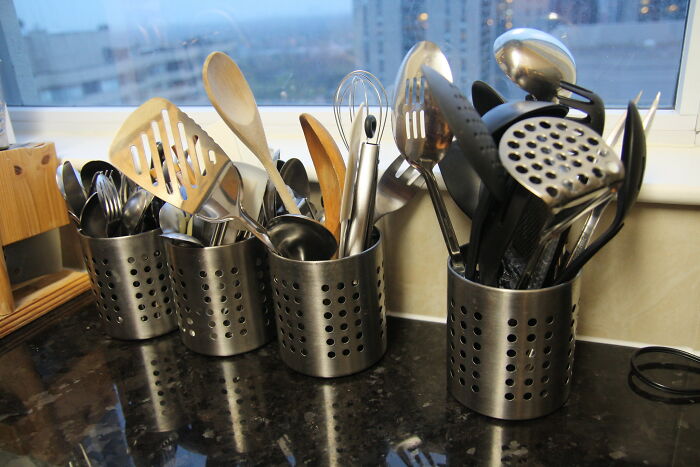 Invest in your tools! Buy a good knife (learn how to keep it sharp) buy a good pot and a good pan. You'd be surprised how much you can do with just those basics and it makes a huge difference.
Invest in your tools! Buy a good knife (learn how to keep it sharp) buy a good pot and a good pan. You'd be surprised how much you can do with just those basics and it makes a huge difference.
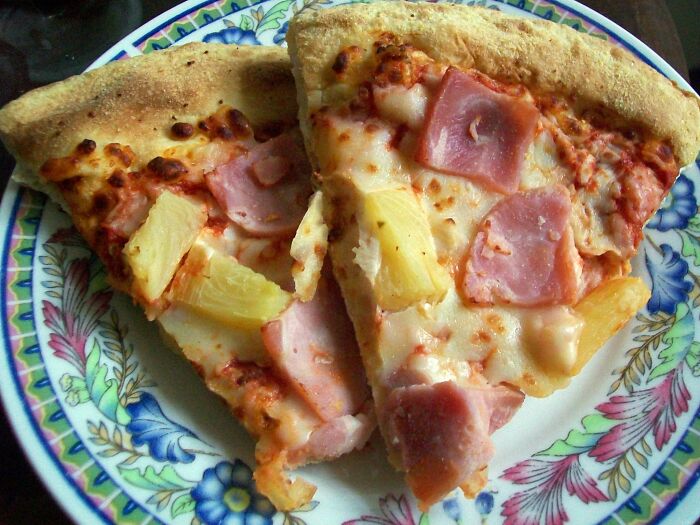 Leftover pizza is best reheated in a pan on a stove top. Throw in some water near the end to steam it to melt the cheese. Then the crust is crisp but the cheese and meat are still hot and gooey.
Leftover pizza is best reheated in a pan on a stove top. Throw in some water near the end to steam it to melt the cheese. Then the crust is crisp but the cheese and meat are still hot and gooey.
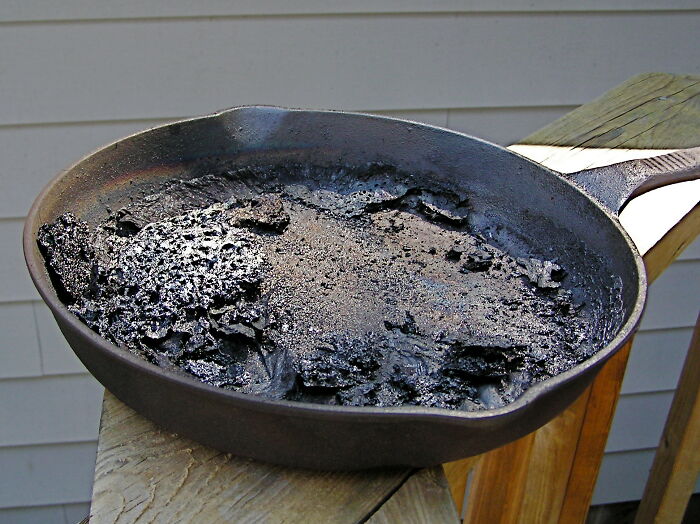 You know that brown stuff that forms at the bottom of a pot/pan when you're cooking? That stuff is the nectar of the gods. Deglaze that f*****g pan and soak up all that tasty goodness. Great for making stews/sauces.
You know that brown stuff that forms at the bottom of a pot/pan when you're cooking? That stuff is the nectar of the gods. Deglaze that f*****g pan and soak up all that tasty goodness. Great for making stews/sauces.
When making fried rice, it's best to use rice that's been left overnight in the fridge. Source: am Asian
When it's cold, it's easy to break up the individual grains without mashing them into pasty nastiness.
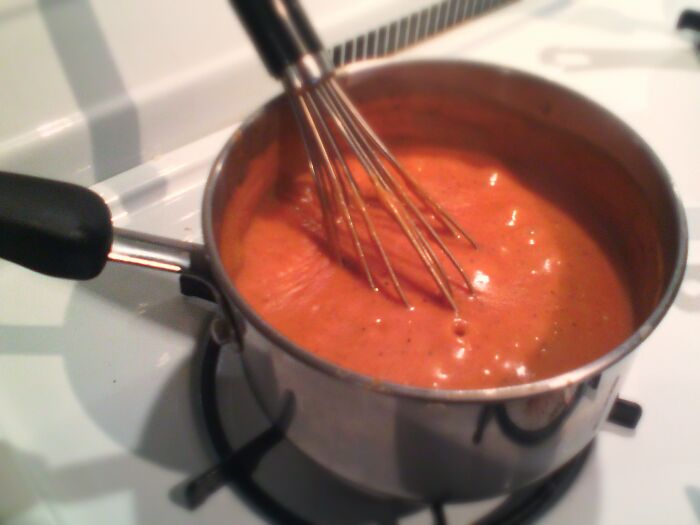 Cook your tomato paste in the pan with the veggies before adding water. It adds so much depth and also gets rid of that acid flavor a lot faster. I let it cook too it turns a dark maroon color then add The liquid.
Great for tomato sauces and soup
Cook your tomato paste in the pan with the veggies before adding water. It adds so much depth and also gets rid of that acid flavor a lot faster. I let it cook too it turns a dark maroon color then add The liquid.
Great for tomato sauces and soup
Or add a tiny pinch of baking soda to remove the acid flavor. My Sicilian grandma taught me to do this in my marinara sauce. It works great, but turns the red of the tomato sauce into a slight pink. Tastes great!
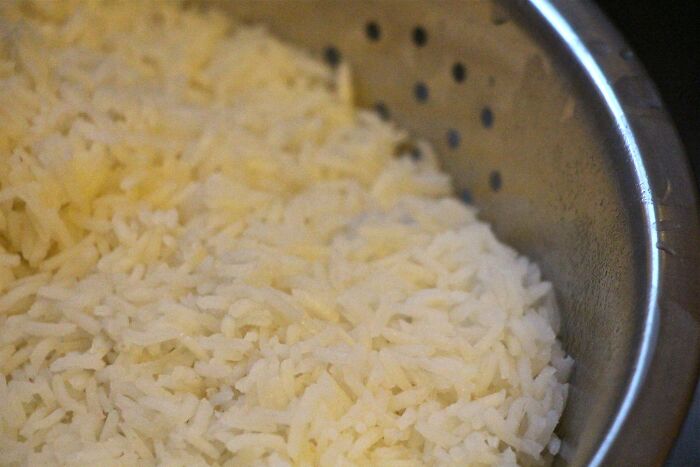 Learn to use a chefs knife and day old rice is best for fried rice.
Learn to use a chefs knife and day old rice is best for fried rice.
Re: rice. You can get food poisoning from rice if you don't store it in the fridge soon enough after cooking. What makes you sick is 'bacillus cereus', bacteria that produce toxins that will give you a (usually) mild vomiting illness. Once the rice is cooked, the bacteria grow and thrive in the moist, warm environment, and cannot be killed in reheating. However, low temperature slows down their growth and makes the leftover rice safer for you. Follow me for more disturbing facts.
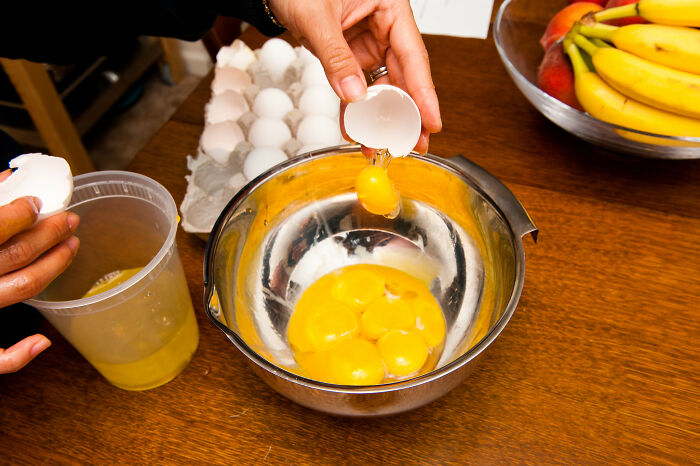 Separate the yolk and whites when scrambling an egg. Whip the whites until they are super frothy (but not meringue) then combine with yolk and gently mix together. The most fluffy eggs ever.
Separate the yolk and whites when scrambling an egg. Whip the whites until they are super frothy (but not meringue) then combine with yolk and gently mix together. The most fluffy eggs ever.
Add a small amount of water (not milk) to the eggs while you are beating them for fluffy scrambled eggs. If you use milk, you will get that milky liquid running around your plate.
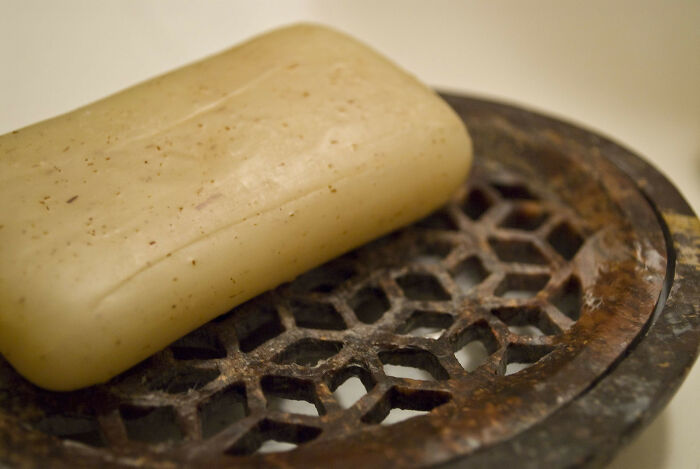 Chopping garlic or other smelly items? Hands now smell? Rub them in a stainless sink or buy 'stainless steel soap'. It'll remove the smell from your hands so you don't smell after you're done.
Chopping garlic or other smelly items? Hands now smell? Rub them in a stainless sink or buy 'stainless steel soap'. It'll remove the smell from your hands so you don't smell after you're done.
It's much cheaper to use the sink or spoons rather that paying for a lump of steel
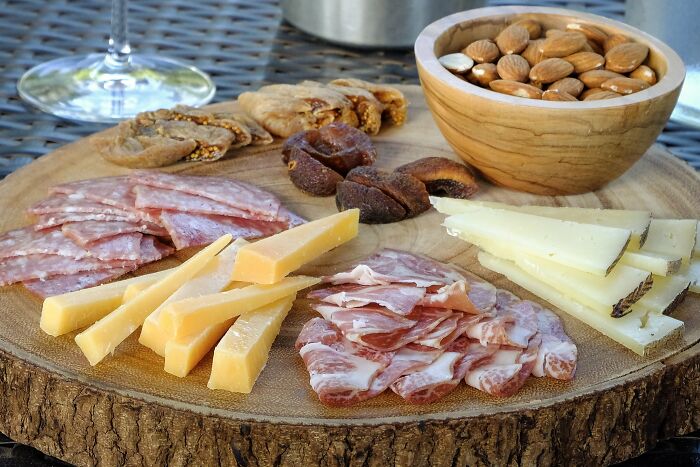 Have something to snack on while you cook. Don't get hangry while cooking; enjoy the process.
Have something to snack on while you cook. Don't get hangry while cooking; enjoy the process.
I can see a wine glass there and I find it to be a good idea, too. One little drawback is that you have to find someone to finish the cooking.
Freeze excess fresh herbs left over after cooking (like when a dish calls for 1Tbsp but you can only buy it as a freaking bouquet at the store). Rinse and dry it well, then chop it up fine (magic bullet is great) and add just enough oil for it to come together (Ive used olive oil and coconut oil with good results). Spoon out into 1 teaspoon servings on parchment paper, then freeze and store in a container/plastic bag, dated and labeled. Some people use ice cube trays, but then you'll only ever be able to use those trays for herbs, since the smell sticks to them, especially if they're silicone. I've done this before with basil, garlic, ginger, garlic scapes, and parsley and it's always turned out great. Beats having your herbs wilt away in the fridge, and it cuts down on future cooking prep times.
Olive oil goes nasty if stored below freezing, because the solids precipitate out.
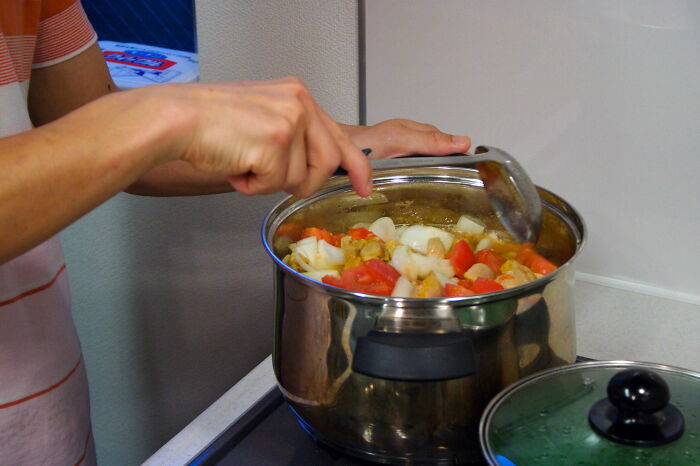 As you go.
Seasoning, tasting, washing up,... Do it as you go. You will make better food and enjoy it more knowing there is very little washing up.
As you go.
Seasoning, tasting, washing up,... Do it as you go. You will make better food and enjoy it more knowing there is very little washing up.
My friends that don't "clean as they go" are friends who don't enjoy cooking!
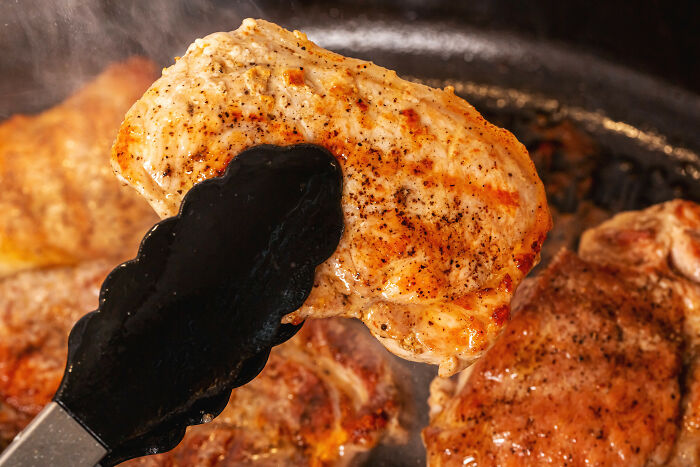 * A sharp knife is safer than a dull one. You want the knife the do exactly what your movements intend, not hesitate or slip.
* Dry your meat before searing and never set it in a pan that isn't hot. You steam your meat and make it hard for the pan to come back up to temperature when you set it in wet. Dry your steak with a towel, salt and pepper the moment before you add it to the pan, and pop it in. Press down gently to create even surface contact. Wet beef (heh) will look gray and unevenly browned. Dry beef will get that nice sear all around.
* You can't "seal in the juices" when you sear. The point of searing is texture and flavor. Color equals flavor, donkey.
* However, you CAN release the juices if you don't rest your meat. REST. YOUR. MEAT. 5-6 minutes for a steak, 10-15 for a thick London Broil. 20-30 for a rib roast of any size. Cut it early and that flavorful juice runs all over the cutting board rather than soaking back into the meat as it relaxes. This is more important with beef than other meat, but I usually let all meat rest.
* When using an oven, treat every pan as if it were hot and grip the handle with a dry towel.
* Keep a stack of towels on hand. Keep some dry for holding and others for wiping.
* [Get your s**t together before you cook. Everything you need should be within arms reach.](https://en.wikipedia.org/wiki/Mise_en_place)
* If you roast a duck, save the fat. Render it, jar it, refrigerate or freeze it. A good duck costs about $35 where I live. I rendered about $20 of pure duck fat off that b***h. Should you be new to the experience of cooking with duck fat, it will change your f*****g life one tablespoon at a time.
* Make your own stocks. Certain bones are hard to come by, but the experience of making stock and the final product, if done right, is amazing. A dish like risotto is going to taste noticeably better with a homemade lamb or veal stock than with the boxed stuff (or, God forbid, the powders). Good luck getting veal bones if you don't live near a good butcher :(
* Brine your pork chops and chicken breasts. Soak them in big bowl of salt water, pepper and a few other things. Really makes them juicy and flavorful.
* A sharp knife is safer than a dull one. You want the knife the do exactly what your movements intend, not hesitate or slip.
* Dry your meat before searing and never set it in a pan that isn't hot. You steam your meat and make it hard for the pan to come back up to temperature when you set it in wet. Dry your steak with a towel, salt and pepper the moment before you add it to the pan, and pop it in. Press down gently to create even surface contact. Wet beef (heh) will look gray and unevenly browned. Dry beef will get that nice sear all around.
* You can't "seal in the juices" when you sear. The point of searing is texture and flavor. Color equals flavor, donkey.
* However, you CAN release the juices if you don't rest your meat. REST. YOUR. MEAT. 5-6 minutes for a steak, 10-15 for a thick London Broil. 20-30 for a rib roast of any size. Cut it early and that flavorful juice runs all over the cutting board rather than soaking back into the meat as it relaxes. This is more important with beef than other meat, but I usually let all meat rest.
* When using an oven, treat every pan as if it were hot and grip the handle with a dry towel.
* Keep a stack of towels on hand. Keep some dry for holding and others for wiping.
* [Get your s**t together before you cook. Everything you need should be within arms reach.](https://en.wikipedia.org/wiki/Mise_en_place)
* If you roast a duck, save the fat. Render it, jar it, refrigerate or freeze it. A good duck costs about $35 where I live. I rendered about $20 of pure duck fat off that b***h. Should you be new to the experience of cooking with duck fat, it will change your f*****g life one tablespoon at a time.
* Make your own stocks. Certain bones are hard to come by, but the experience of making stock and the final product, if done right, is amazing. A dish like risotto is going to taste noticeably better with a homemade lamb or veal stock than with the boxed stuff (or, God forbid, the powders). Good luck getting veal bones if you don't live near a good butcher :(
* Brine your pork chops and chicken breasts. Soak them in big bowl of salt water, pepper and a few other things. Really makes them juicy and flavorful.
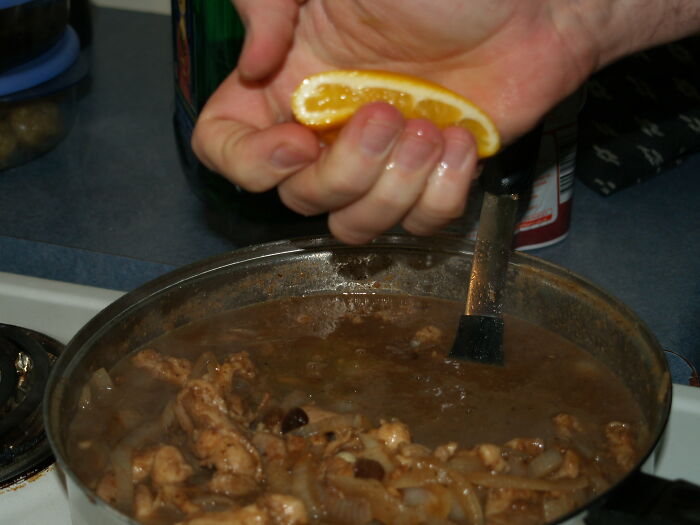 Adding acid (lemon juice, vinegar, etc) to any dish can turn any dinner party into a real *trip*!
Adding acid (lemon juice, vinegar, etc) to any dish can turn any dinner party into a real *trip*!
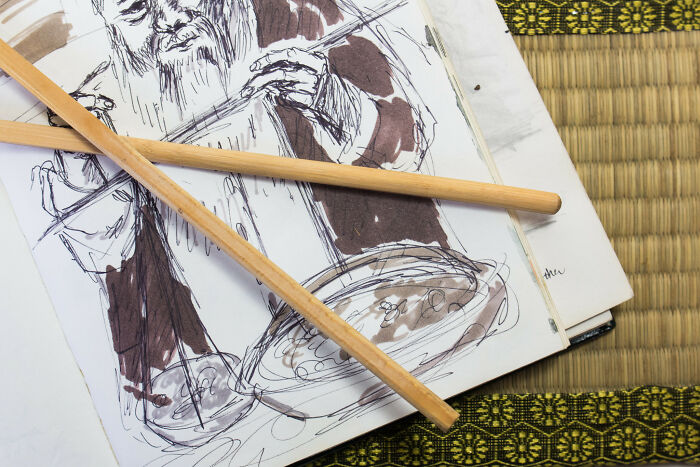 Use chop sticks to dip cheese puffs into smoldering hot nacho cheese, this way you don't get any residue on your Magic: The Gathering cards.
Use chop sticks to dip cheese puffs into smoldering hot nacho cheese, this way you don't get any residue on your Magic: The Gathering cards.
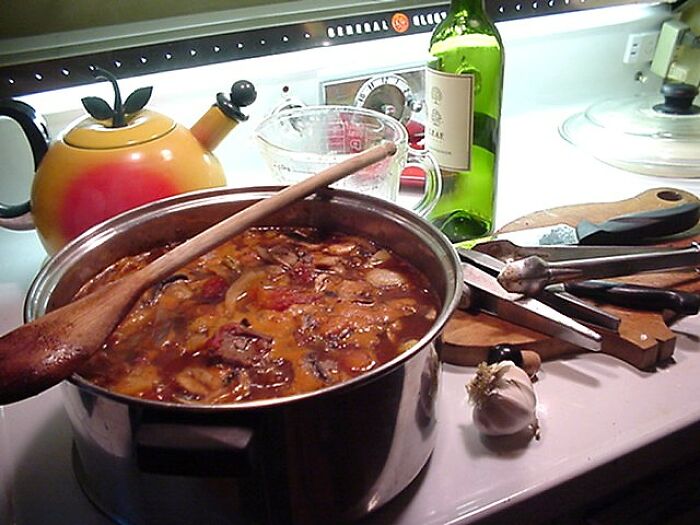 Always place something over a boiling pot, never breathe through your nose while cutting onions, try to be as tidy as possible and wash any dishes after each use, put out all your ingredients first to make sure you've got everything and don't forget to pre-heat the oven !
Always place something over a boiling pot, never breathe through your nose while cutting onions, try to be as tidy as possible and wash any dishes after each use, put out all your ingredients first to make sure you've got everything and don't forget to pre-heat the oven !
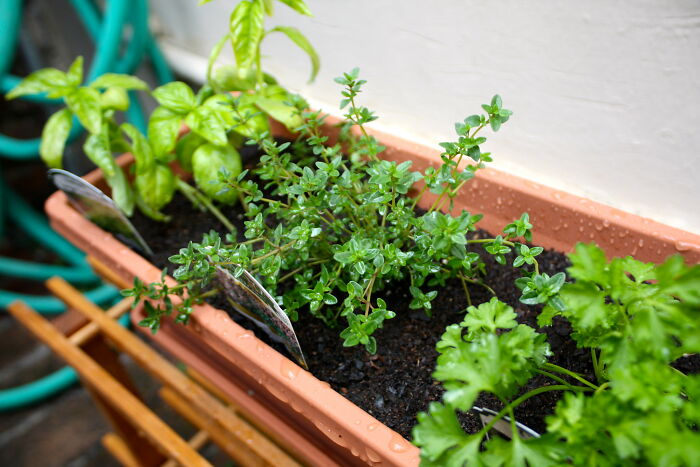 1. Growing your own herbs is way easier than you might think and they taste better than what you buy at the store. Green onions can grown in a jar of water or a small pot of dirt that's watered regularly. You can also cut green onions and the roots will allow them to grow back.
2. There are so many easy and different ways to make your own salad dressings using very basic ingredients.
1/2 cup olive oil
1/4 cup dijon mustard
3/4 lemon juice
throw in som thyme, dill, and salt/pepper and whisk or shake.
3. Don't buy Pesto sauce. It's easy to make and it's sure to impress anyone if you do it right. Use pesto with sauce with twisty noodles, they grip onto oily sauces better and allow you to use less sauce per serving.
4. Cook with someone. I enjoyed cooking before I met my fiance. But working with her in the kitchen for dinner is one of my all time favorite things. You learn a lot about someone when you watch them cook: how organized they are, how focused, and creative they can be. Watching my fiance cook is something I look forward to when I get home from work because nothing matters when we're in the kitchen. We learn all sorts of stuff about food and new recipes but it's also kind of our confession booth.
That last step is more for me, but you get the idea. Thank you for asking this beccause the comments on here are amazing.
1. Growing your own herbs is way easier than you might think and they taste better than what you buy at the store. Green onions can grown in a jar of water or a small pot of dirt that's watered regularly. You can also cut green onions and the roots will allow them to grow back.
2. There are so many easy and different ways to make your own salad dressings using very basic ingredients.
1/2 cup olive oil
1/4 cup dijon mustard
3/4 lemon juice
throw in som thyme, dill, and salt/pepper and whisk or shake.
3. Don't buy Pesto sauce. It's easy to make and it's sure to impress anyone if you do it right. Use pesto with sauce with twisty noodles, they grip onto oily sauces better and allow you to use less sauce per serving.
4. Cook with someone. I enjoyed cooking before I met my fiance. But working with her in the kitchen for dinner is one of my all time favorite things. You learn a lot about someone when you watch them cook: how organized they are, how focused, and creative they can be. Watching my fiance cook is something I look forward to when I get home from work because nothing matters when we're in the kitchen. We learn all sorts of stuff about food and new recipes but it's also kind of our confession booth.
That last step is more for me, but you get the idea. Thank you for asking this beccause the comments on here are amazing.
Disagree on the pesto. Getting the ingredients for a good pesto sauce is more expensive than getting a good pesto sauce. Might be different in different places, but that's my math even with having a jar of basil growing.
It's better to cook chicken slow and low than fast and high. (Exception being fried chicken)
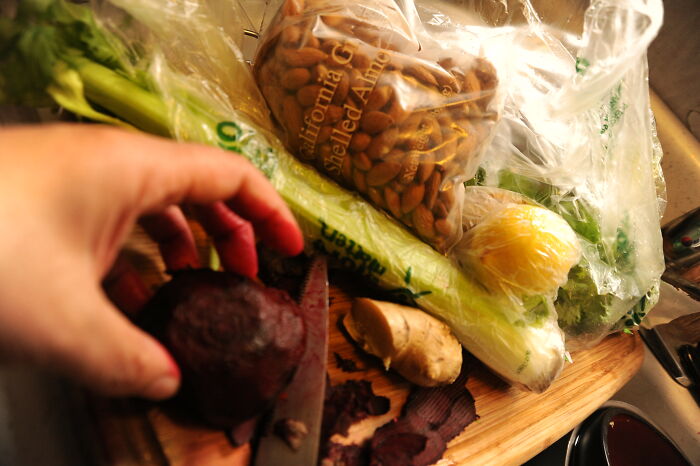 If you put your veggies in one of those plastic bags at the grocery store use them to put all the scraps from prepping veggies into and you've got a convenient garbage bag for scraps.
If you put your veggies in one of those plastic bags at the grocery store use them to put all the scraps from prepping veggies into and you've got a convenient garbage bag for scraps.
Keep used bags if they are not messy, use to dispose of scraps/leftovers that are not going to be used (plate scrapings, etc.). Your garbage pail and your house will appreciate it.
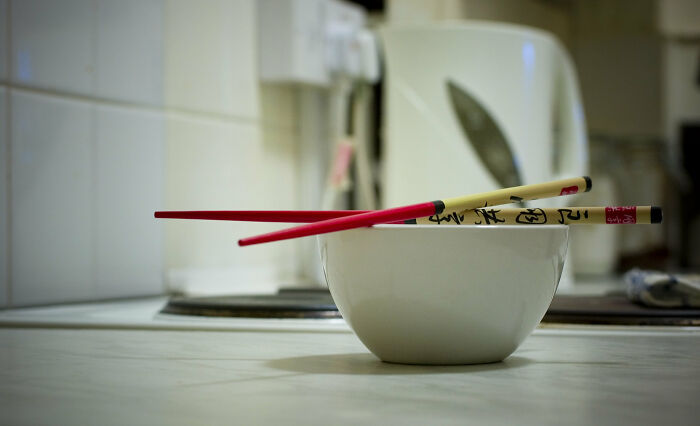 Not a hack but...
I like using **chopsticks** to mix, toss, turn, flip stuff. I can use them to eat my food then.
Not a hack but...
I like using **chopsticks** to mix, toss, turn, flip stuff. I can use them to eat my food then.
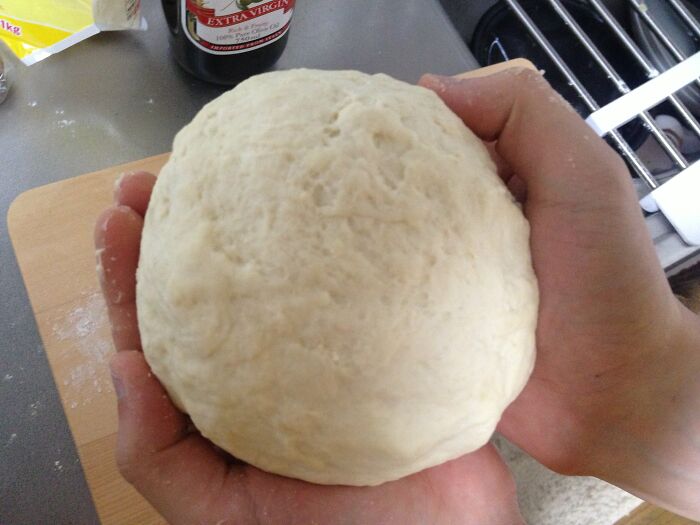 When kneading dough or making pasta dough, put down a big cutting board with something grippy under it. It's easier to move the cutting board to a sink with a sprayer than to struggle to scrub the counter!!
When kneading dough or making pasta dough, put down a big cutting board with something grippy under it. It's easier to move the cutting board to a sink with a sprayer than to struggle to scrub the counter!!
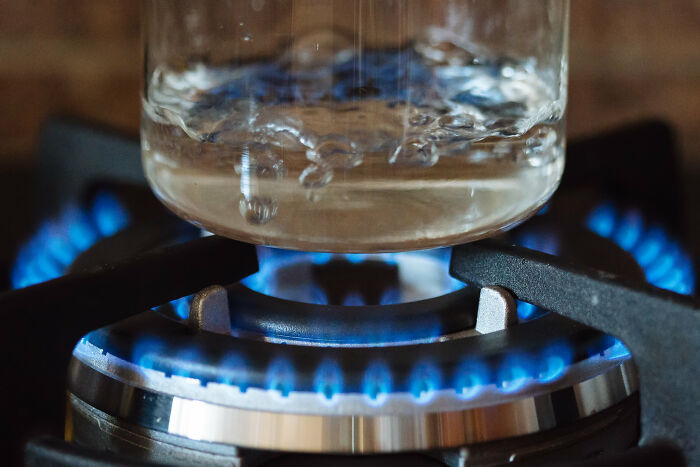 Never watch a pot of water boil. Because it won’t. Go to the other room and BAM, it’s boiling.
Never watch a pot of water boil. Because it won’t. Go to the other room and BAM, it’s boiling.
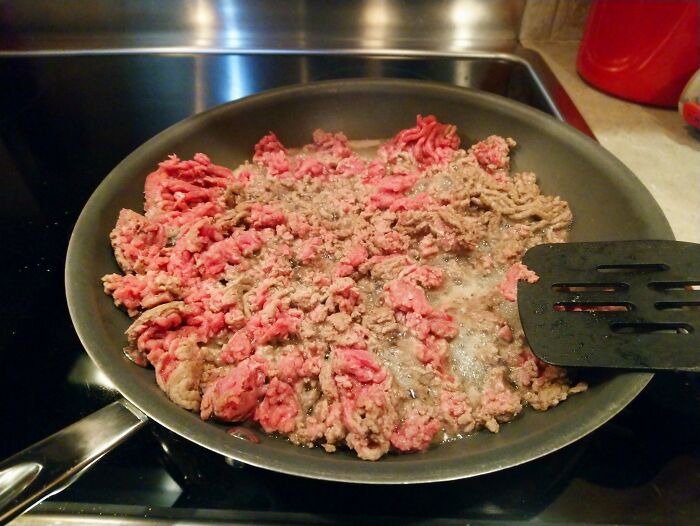 Taco seasoning; 2T cumin, 2T chili powder, 1t garlic powder, 1t onion powder, 1t cracked pepper, 1t sea salt, 1t oregano, 1t cornstarch. Add to 1lb drained ground beef along with 3/4c of water.
Throw the pre packaged, store bought seasoning packet away.
Bonus; add 1/2 of a diced onion while cooking the beef, before draining. Add 1 can of drained tomatoes and green chillies along with the seasoning mix and water.
Taco seasoning; 2T cumin, 2T chili powder, 1t garlic powder, 1t onion powder, 1t cracked pepper, 1t sea salt, 1t oregano, 1t cornstarch. Add to 1lb drained ground beef along with 3/4c of water.
Throw the pre packaged, store bought seasoning packet away.
Bonus; add 1/2 of a diced onion while cooking the beef, before draining. Add 1 can of drained tomatoes and green chillies along with the seasoning mix and water.
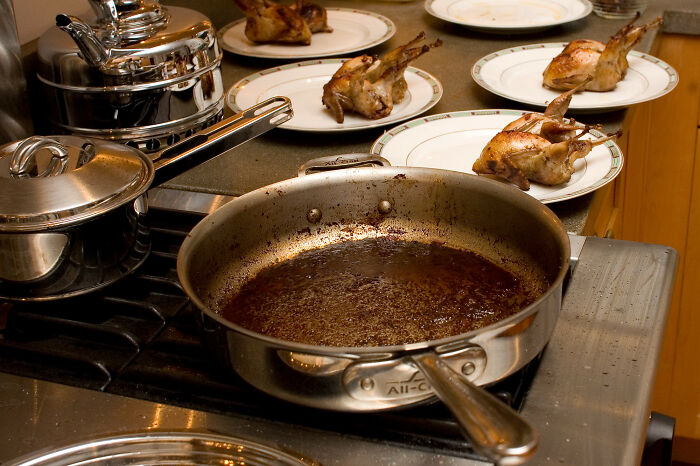 High heat is only for boiling water and for when you want black residue permanently stuck to the bottom of your pan/pot
High heat is only for boiling water and for when you want black residue permanently stuck to the bottom of your pan/pot
I call b******t. If I don't zse the highest heat I will not get great Gulasch or similar. To clean the pan or pot just boil some baking powder wuth little water.
More of a cleaning one, but mix water and dish soap in a spray bottle for easy and fast cleaning. Also, always clean your dishes right after you're done eating so it doesn't pile up and you can feel better about yourself.
No, no, no! After eating, sit down, enjoy and digest! You're gonna be much less tired in a couple of hours, take care of the dishes then while you're probably popping in the kitchen to get something to drink anyway
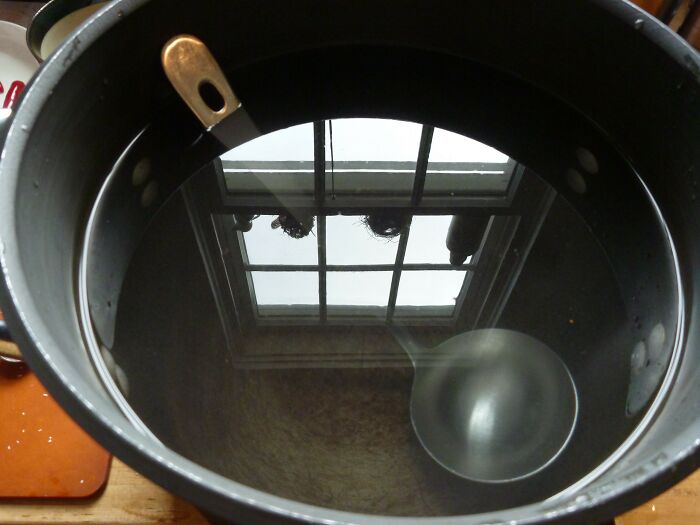 Use a simple brine for *all* chicken or pork prior to cooking. I had no idea that I actually liked chicken breast or pork chops until I had ones that weren't dry.
Use a simple brine for *all* chicken or pork prior to cooking. I had no idea that I actually liked chicken breast or pork chops until I had ones that weren't dry.
Invest in 5-10 gallon tupperware containers to store things like flour, rice, and sugar. It will keep them dry and keep those annoying bugs that like rice away.
Not much of a hack, but when I don't feel like cooking I just make peanut butter and graham cracker sandwiches, a recipe my dad invented.
HOLLDDD UP!!!! Your dad STOLE my invention!!! I'll see you in court Edison! - love Tesla ;)
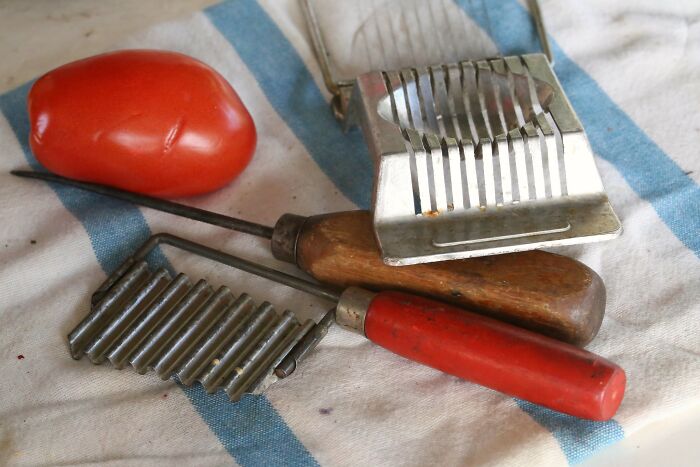 Less of a hack and more of advice. Never buy specialty devices, the cost is never worth it. Unless you really plan on using that one item enough that it pays for itself.
Edit: I found that all of the people who disagreed with my post all stated a one use item that they personally use. I also found that most of the people who used there magical one device is a "personal" item they them selves would use and can't represent a majority. For just those folks those items have paid for themselves but I bet if they looked at others they would find its more on a person by person basis.
Less of a hack and more of advice. Never buy specialty devices, the cost is never worth it. Unless you really plan on using that one item enough that it pays for itself.
Edit: I found that all of the people who disagreed with my post all stated a one use item that they personally use. I also found that most of the people who used there magical one device is a "personal" item they them selves would use and can't represent a majority. For just those folks those items have paid for themselves but I bet if they looked at others they would find its more on a person by person basis.
If your making a grilled cheese and one end is soggy with butter and not crisping up, you need MORE butter, not less
The best grilled cheese requires a ton of butter and low heat. Personally it requires sour dough bread as well but that may be just me. The butter and low heat are necessities. [yeah yeah mayo folks, we all see you but I'm not buying it]
I want to add that when you sharpen a knife, ALWAYS rinse it and wipe off the blade after sharpening. When you sharpen a knife, the sharpener shaves off tiny bits of metal that will stay on the blade unless you wipe it off after. You don't want that stuff to end up in your food, even if you can't see it.
Well the term "hack" is officially meaningless. These are just how to cook.
To be fair, these are hacks to some people. Some people are utterly clueless when it comes to cooking so I can see how these things are helpful. Maybe not to you and me, but others.
Load More Replies...I want to add that when you sharpen a knife, ALWAYS rinse it and wipe off the blade after sharpening. When you sharpen a knife, the sharpener shaves off tiny bits of metal that will stay on the blade unless you wipe it off after. You don't want that stuff to end up in your food, even if you can't see it.
Well the term "hack" is officially meaningless. These are just how to cook.
To be fair, these are hacks to some people. Some people are utterly clueless when it comes to cooking so I can see how these things are helpful. Maybe not to you and me, but others.
Load More Replies...
 Dark Mode
Dark Mode 

 No fees, cancel anytime
No fees, cancel anytime 


